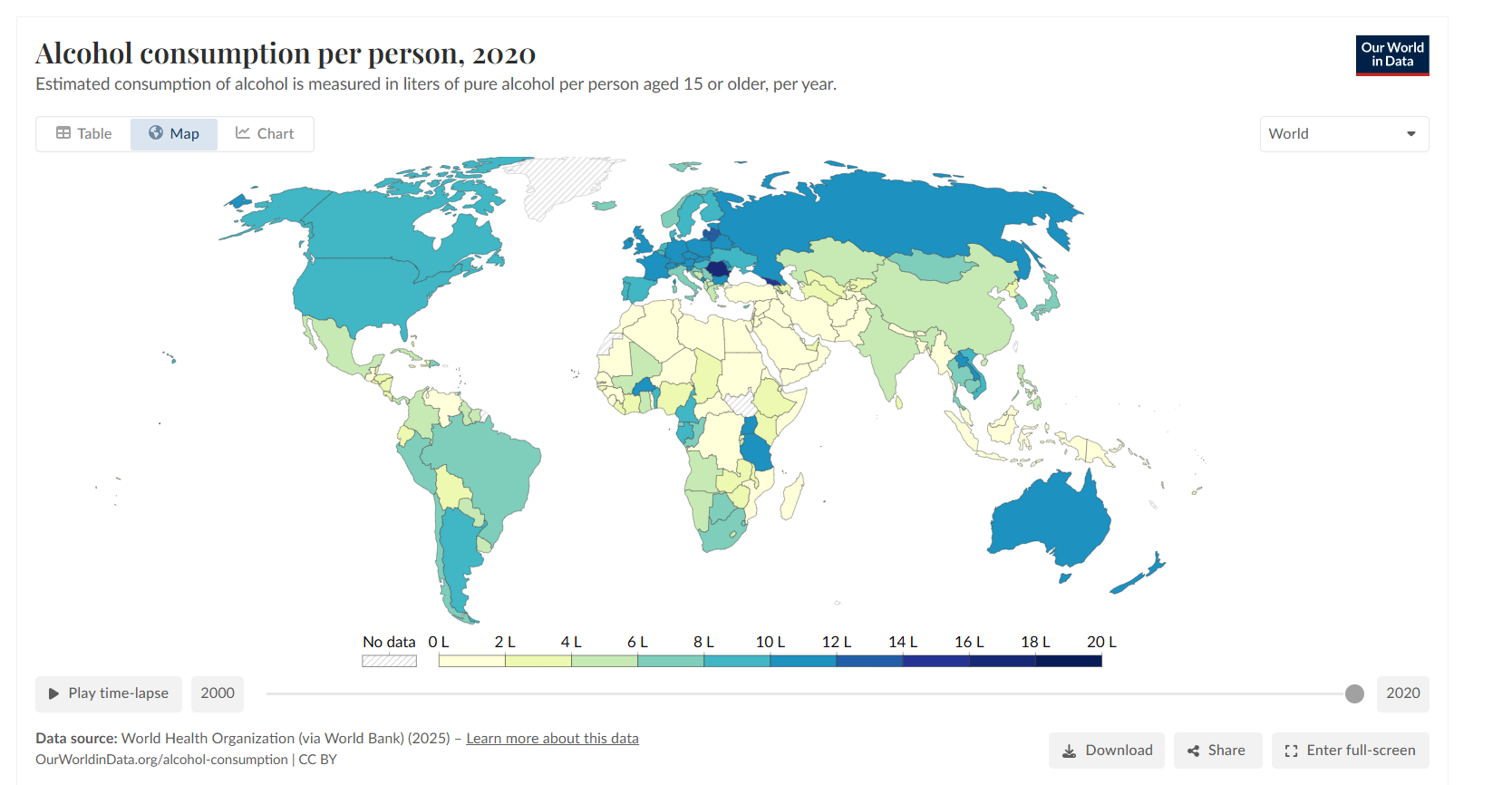Watching similarities and differences

One of the things I like to do when travelling is to look for the things that are the most similar and the things that are the most different. When I went through so many different countries in such a short time it was very easy to see a lot of things very quickly. I would also probably say that I saw too much too quickly and suffered from a lot of overload.
One of the things I really enjoyed doing in every place that I went was to go to the grocery stores to see what people were eating. I guess the same could be said about going to the restaurants however, in the grocery stores it was much easier to find both similarities and differences.
Sometimes things look the same but it isn't
Now I love Coca Cola. It is easily recognizable wherever you may go. Bright red bottle and same predictable taste. Right?
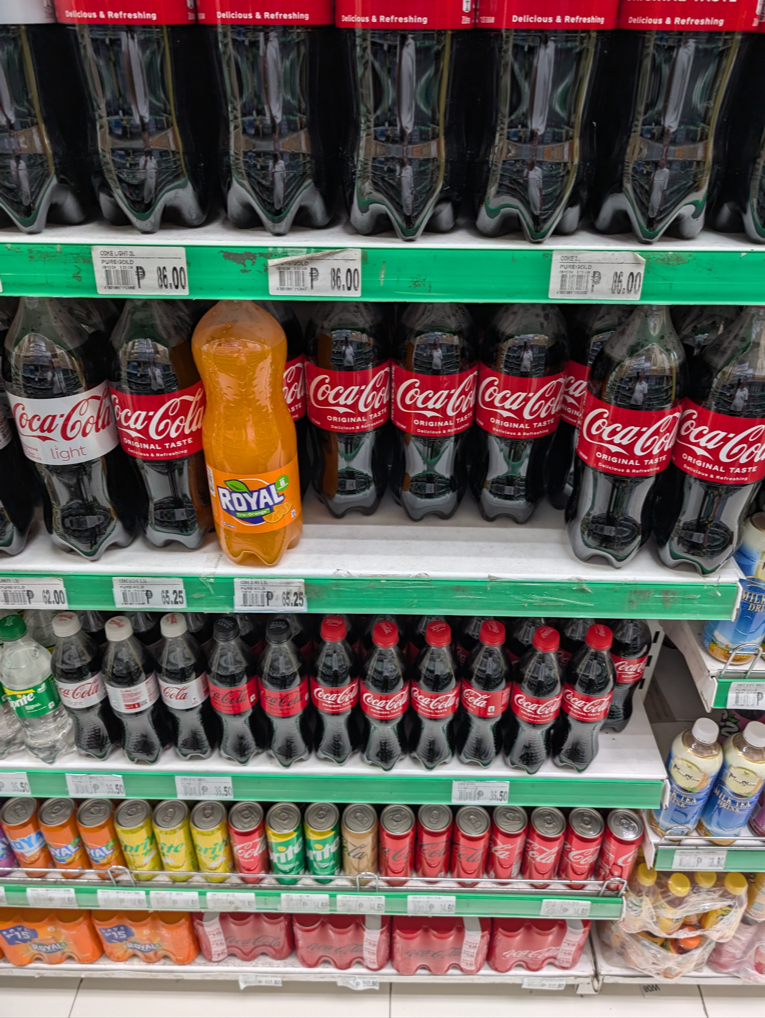
But sometimes things that look the same AREN'T the same. If you look just a little closer.
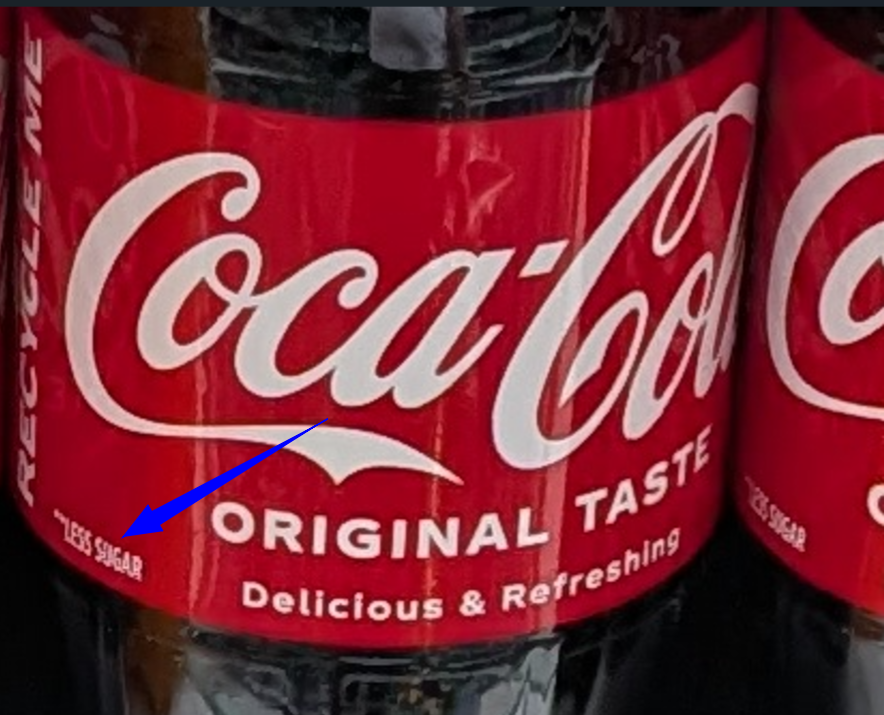
Do you notice how the Coca Cola has the same distinct logo and the same white on red logo to show that it is the regular version. However, when you look closer you will find the ***LESS SUGAR because the Filipino version has mandated less sugar in it. In fact it is about 30% less sugar than the Canadian version.
Why?
Because the Philippines wants to limit the sugar intake on its sugary beverages. Or perhaps they just have a sugar shortage and want to keep the price down. Either way the government mandates healthier options for their citizens.
However, sometimes the government bans things that are bad for you outright and sometimes they just tax it so much that you may not want to buy it. Indeed when I went to Europe in 2019 I went to the vending machine in the airport and noticed that regular Coca Cola was more expensive than the diet version. Why? There was a tax on sugary beverages.
Moving forward I'm going to look at a few different "Sin" items that governments tend to look at.
- Sugar is the one that I just mentioned
- Alcohol
- Cigarettes
- Cannabis
Alcohol
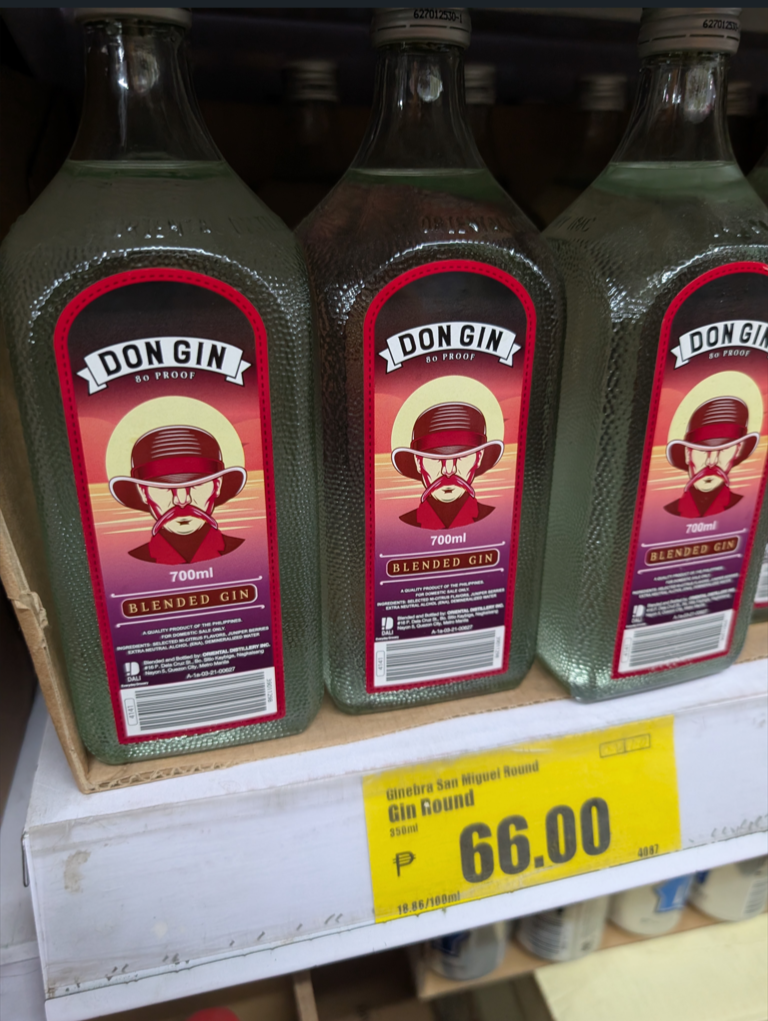
Now I took this picture because of the price. P66 for 700mL of Gin. For comparison here is an image I took from the bc liquor website for a Canadian equivalent.
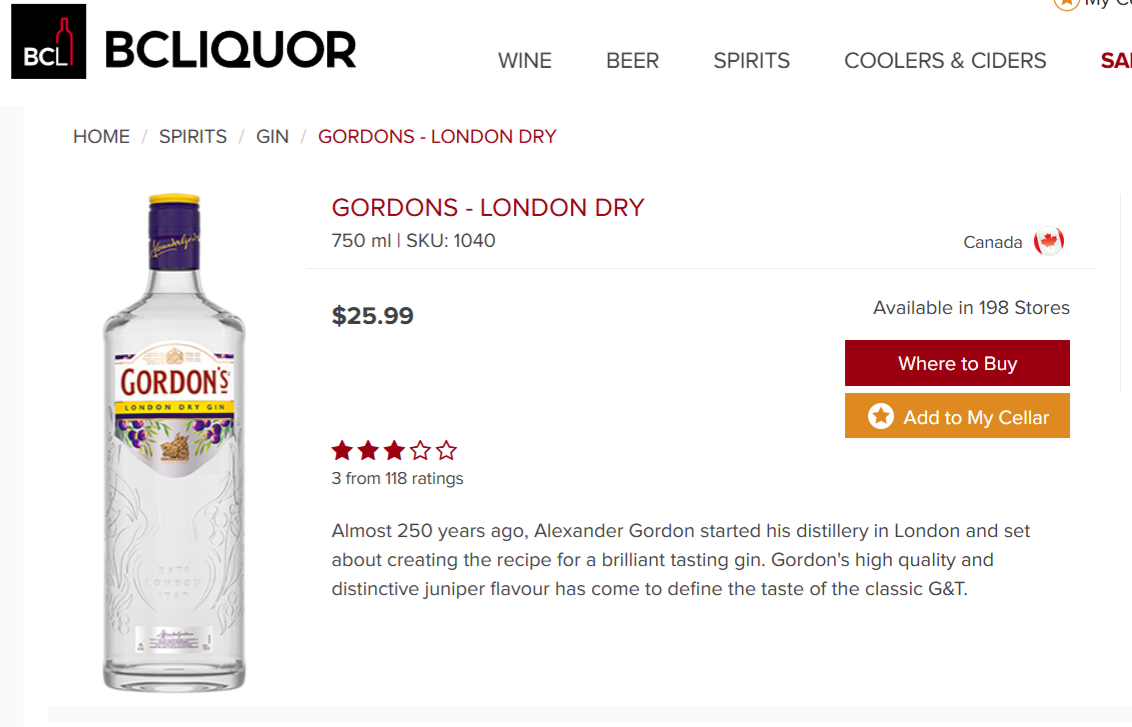
They are both roughly the same size (700 vs 750ml) but one costs P66 and the other costs P1040. Gin costs 15x more in my province than in the Philippines.
However, if you head over to Indonesia or Malaysia? Good luck trying to even FIND alcohol. Those countries have a large number of Muslim faith and alcohol is haram. That means the government bans the sale of liquor. MOSTLY being in an international hotel I could purchase alcohol if I really wanted to but at prices that made Canadian prices look cheap
In short, you have cheap gin in the Philippines sold as a commodity while in Canada, Indonesia and Malaysia you pay a whole lot more to get alcohol because it is heavily taxed by the government.
Cigarettes
Now I don't smoke and no-one in my family smokes so I didn't look very hard at the price of cigarettes. However, cigarettes are common enough in both countries that I couldn't help but notice a little difference and a similarity.
First: In both countries there are very graphic warnings about the dangers of smoking. In Canada the most memorable is an image of a limp cigarette saying that cigarettes cause impotence. In Philippines a man with part of his face missing and a caption that cigarettes cause mouth cancer. Both different but both graphic.
Second: In my province you can't show or advertise cigarettes. They can be sold but they have to be out of sight and in a cabinet where they can't be seen. In the Philippines there are ads at virtually every sari-sari (local variety store).
I just did a quick Google search for cigarettes in British Columbia (my province) and the price is a whopping $15.51 for a pack of 20 cigarettes or a cost of $0.775 per cigarette. But why would I include the price per cigarette? In the Philippines the cigarettes are sold individually and it is quite common to see great big signs that say "Still just P8 per stick!". P8 is about $0.20.
Cigarettes are about 4x as expensive in my province Because we charge a hefty tax on cigarettes!
Cannabis
Now for a very long time Marijuana / Cannabis was illegal in Canada. When that was the case there were an awful lot of illegal grow operations and the cost of Marijuana was very high. Indeed it was traded by gangs and trafficking in it was very profitable.
If you are in countries like Japan and the Philippines it is still very much illegal. In Malaysia before we landed there was an announcement over the airline PA system that illegal drugs were treated harshly with penalties up to and including the death penalty. Yes, Cannabis which is legal in Canada could get you killed in Malaysia. Now a quick Google search showed me that the death penalty has been rescinded in Malaysia for Marijuana...but it could still land you in jail for 40 years!
So this is one of those things which many countries believe is bad for you and they just say you can't have it. In Canada we took a different approach. Sure they believe it is bad for you but...having international gangs making money and threatening local citizens is bad for you also. The government decided, well, lets make it legal, lets make there be lots of rules with its sale.....and lets throw on a huge tax to make sure we make a lot of money from it.
The end result: Grow Ops are a thing of the past where I live. Gangs no longer deal in Marijuana where I live. But a drug which can cause serious harm is more available now than ever. I guess I'll also add that there are big signs at the airport to remind people don't fly internationally with it as it can land people in serious trouble.
Effects of sin taxes
What happens when the government implements higher taxes on items which aren't good for health? I'm sure that that is a question far above my pay grade as I don't have access to advanced sales analytics. What I do have is what I see around me and access to Google results and opinions.
Alcohol
I can say that alcohol in Canada is much more expensive in Canada than many other places that I've visited. However, when it comes to comsumption we aren't the biggest consumers but we certainly keep up there with much of the world.
That matters.
For many people they unfortunately prioritize drinking alcohol over other expenses they could make such as nutritious foods. For young adults who want to go out drinking with friends or people lower on the economic scale who want to escape the realities of life alcohol is important. Sure many wealthier people also partake as a social lubricant. However, grabbing a beer can run you $5-$9 at a restaurant and your entree can cost almost the same amount. Cooking at home you can get your entire daily nutrition for less than that $9.
Think of that. One beer or one nutritious, home cooked, meal But if you are spending money on beer at the expense of foods people will often turn to less nutritious high calorie, low nutrition foods which can certainly be a contributing factor to being overweight with poor nutrition.

Tasty treats. Cheap(ish) and terrible for nutrition. Image is mine from my travels.
Did taxing alcohol decrease consumption?
For some, sure. For others it just took money away from other essentials like food and in some cases even housing. Alcoholics passed out on the street was commonplace in my hometown when I was young. These days hard drugs can actually be cheaper than alcohol to fuel an addiction so I see more drug addicted homeless people. Of course keeping people from starting alcohol consumption is also important which is why packages like this :
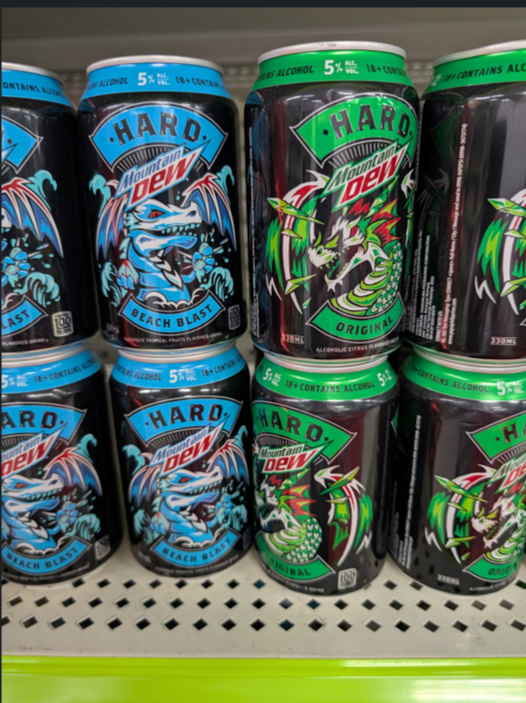
Image I took from Purefoods in Manila.
Which would market to younger people and make the alcohol look "vibrant and fun" aren't allowed where I live. And why I took an image of it when I was in the Philippines.
Smoking.
Looking at smoking the price of cigarettes in Canada has hit the pain point in Canada. Seeing people out smoking in Canada does happen of course but it is increasingly rare these days. Vaping is far more common. However, coming back from Asia where I saw a LOT of smoking and a LOT of vaping it makes the nicotine culture in Canada seem mild by comparison. Sure the stigma with smoking in Canada is something that likely decreases its popularity but price is also a factor as well. Indeed, as a Pharmacist when people often come into my work and want to stop smoking a big factor is often stated as "it is just so expensive".
Cannabis and Sugar
I can't really say much on this one because the results and comparisons are pretty silly. Comparing usage in Canada where it is legal to Malaysia where it can lead to life in prison--the difference isn't likely due to cost at that point. Comparing how usage increased when it went from being illegal and expensive in Canada to where it was legal but less expensive and highly taxed is also a pretty silly comparison. It would surprise no-one that usage increased when it was less expensive and legal!
About sugar? Well, staple foods aren't taxed in my area and sugar went from staple food to processed food an addition of a 7% tax. However, sugar is cheap at about $0.15/100g. Would adding a few pennies onto the cost of an item change consumption? Highly unlikely. When I was in Europe did an extra $0.50 weigh into my decision to buy a Cola? Not really. Why? Prices on sugary beverages already is high dependent on where it is purchased. When purchased at the grocery store Coca Cola is $0.65 / 700ml but purchase it at a convenience store that same beverage can be $3.00 or about 5x the price. People buy it in both places. If people will pay a 500% "Tax" for convenience would a government tax make any real difference? I doubt it....unless the tax was very large.
Should the government charge very large sin taxes?
Now the question of "should" the government charge higher taxes on items that are not good for society? That's a very tough call. Although I'm going to lean into "Yes, higher taxes should be placed on dangerous products to reflect the higher costs to society because of them. Let me break that down a little further.
Smoking
Now smoking has a huge effect on people's health. If you smoke you will almost certainly have higher medical costs. Cancer is the obvious one. COPD and emphysema are two more fairly common ones. Then there are the less common medical costs like slower wound healing. Or while not medical related, lower productivity at work due to the need for 'smoke breaks'. In Canada where the taxes pay for medical treatment a person's smoking habits cost the average person money. Taxing smokers more money in the beginning means they are proactively paying for their down the line medical treatment...or so it would seem. The problem is that medical treatment, hospital visits and chemotherapy drugs are very very expensive. I find it unlikely that the taxes charged in advance would cover the treatment later.
If it costs money why not just ban it?
Cannabis
Unfortunately a ban is unlikely to be the answer. Did cannabis use increase after it was legalized? Sure. However here is the thing....even when it was illegal people were still using it. If it is illegal there is no money coming in to pay for the detrimental effects. Indeed there are even more costs to society from gang activity and police enforcement costs not to mention the costs to house people in jail for breaking the law. At least when it is legalized you have money coming in from taxation even if it isn't enough to cover treatment costs.
Alcohol
Of look at alcohol. Alcohol abuse costs society both in treatment but in other ways like spousal abuse, public mischief, traffic fatalities and more. How much money would the government have to get in tax to pay back a family who lost a member to a drunk driver? It is a rhetorical question only....no amount of money can ease the grief for that loss. But does banning it work? Probably not. Look at Malaysia. The culture is Muslim culture effectively bans alcohol...yet moonshine still exists and people still go blind because of improper at home manufacture. Or look in prisons where it is banned....people still find a way to make it where you wouldn't believe it is possible.
So if I had to make a change? Of course I would tax things that are bad for health when purchased but I would also increase people's responsibility for their own health and actions.
Sugar
The biggest thing I would want to change is in responsibility for their own health. Foods with a lot of processed sugars along with overeating and processed foods are a major issue contributing to obesity. Obesity causes no end of problems from worn out joints, diabetes, heart attacks and strokes plus so much more. The costs to society to provide health care for these people is staggering.
So, should people be "on the hook" to take responsibility for their own health? Should society pay the cost for people who make bad food decisions? It's tough to answer but I'm going to lean into...people who get obese from poor food choices should receive treatment when ill but should also take steps to correct the problem once medical issues crop up or be forced to pay a greater share for their medical treatment.
Sure compassion is important in society and people shouldn't be forced to die because of previous bad mistakes. However, there should also be consequence in society as well. If people make bad choices then bad things happen. I don't believe that society should pay for an individuals bad decisions. There has to be a balance.
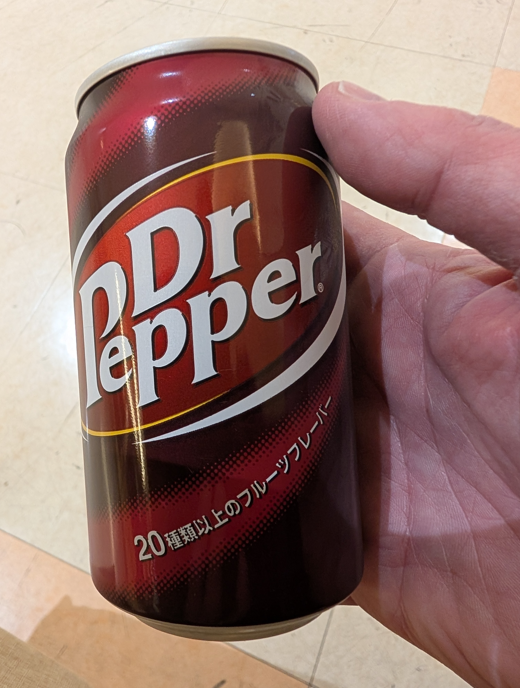
Just for fun a picture of Dr. Pepper from Japan. Cheap in Canada and Japan but very very expensive Indonesia. Want to decrease a drinks popularity...charge IDR 35K for one can when the Coca Cola right beside it is only IDR 6K
Compassion VS Consequence
One place where this is glaringly obvious in my province is with hepatitis C infection. Now Hepatitis C can be contracted in many ways but one major way to get it is through IV drug use. It costs about $100,000 to treat an individual (rounded down) which means that if you were to treat everyone in my province the 99% who don't have it would be paying $1000 per person yearly to treat those who do have it. A family of four $4,000 in taxes to treat people who made bad life decisions ...and as long as they keep making those bad decisions reinfection is likely meaning more and more costs to the public at large.
Hepatitis C can kill and cause severe chronic illness. In that way it would not be compassionate to deny them treatment. However the expenses for treatment are heavy so perhaps there should be some consequence for those people who self inflict damage on themselves. Where do I draw the line? I'm not God or the shepherd of society so I'm absolutely not qualified to make that decision. Or maybe I'm just a coward and don't want to go there because any plan would be controversial. Regardless it is a thorny topic on who pays when things go bad.
To sum it all up
Sin taxes absolutely exist. Sometimes they are helpful in curbing public usage when used along with advertising and a general consensus in society that something is bad. Smoking where I live is proof of that.
However, Sin taxes aren't something that works all the time for all cases. It certainly hasn't curtailed alcohol use where I live and indeed the lack of disposable income by people who are heavy drinkers may have unwanted effects on nutrition and other factors.
It is easy to say that we should just ban things that are bad for people. Unfortunately that paternalistic instinct just increases costs in other areas like policing, incarceration, and societal costs when criminals subvert the system.
It is easy to say "you harmed yourself so you pay the cost" to someone who is obese from too much sugar, or has cancer from smoking. However, it is heartless for someone who will be hurting with an expensive and debilitating or fatal illness. So compassion has to be weighed with consequences and in the end.
It makes for a very thorny and complicated question.
Of course that is just my take on things. Feel free to leave comments or feedback. I always love feedback.





